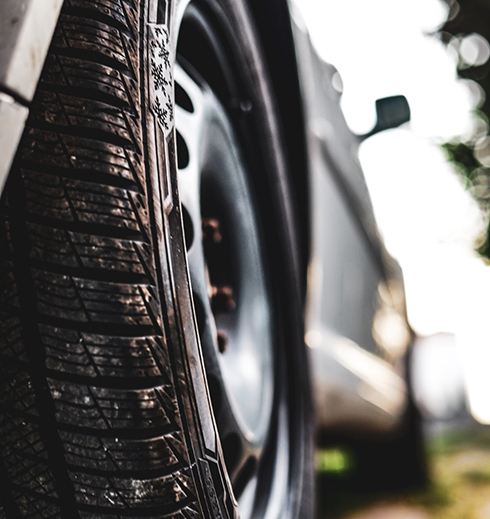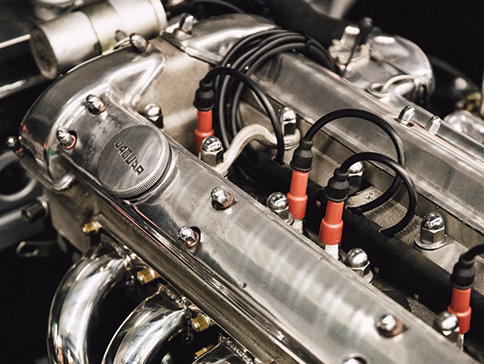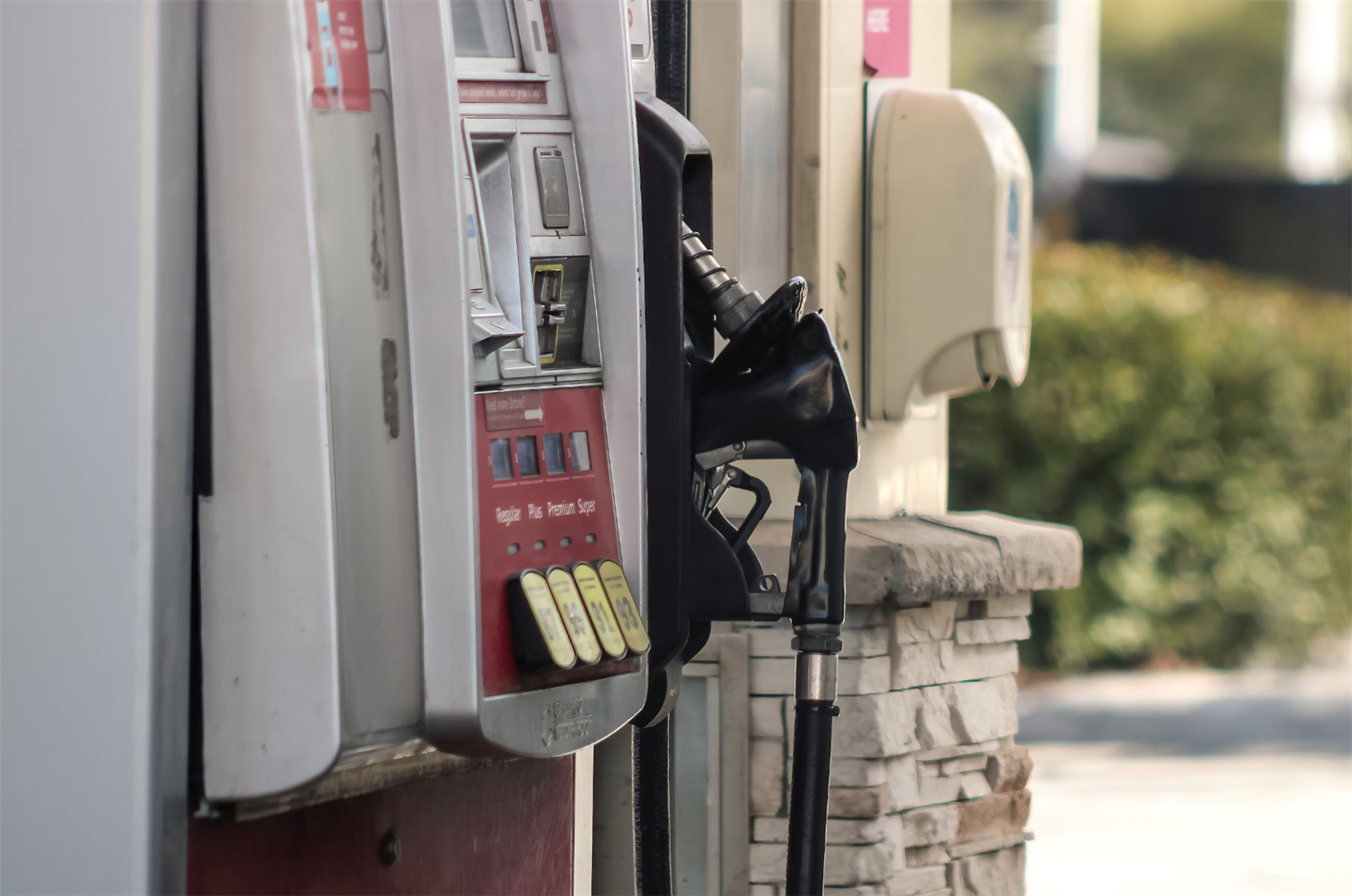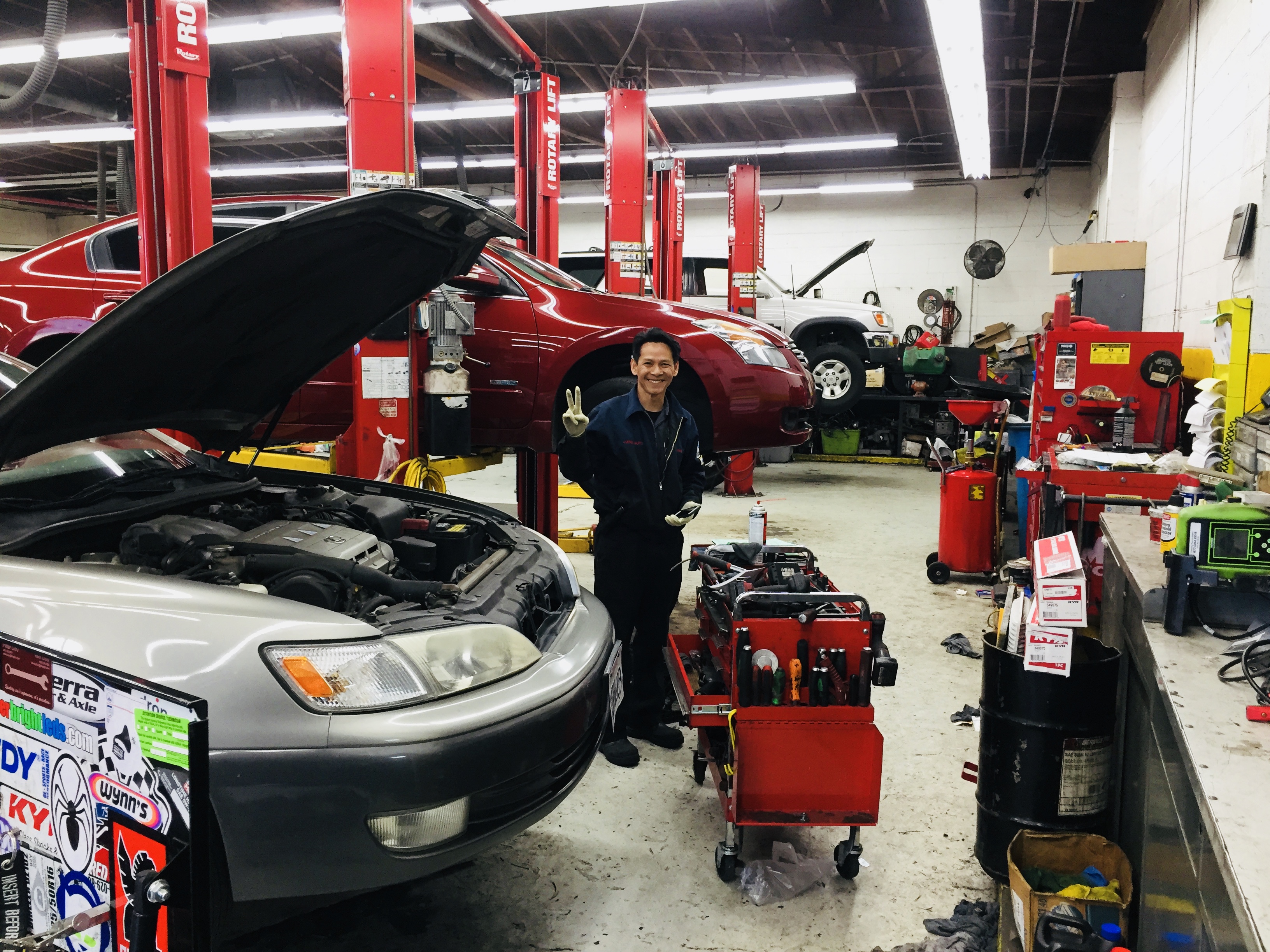Posted on 2/1/2025

Dashboard warning lights can often leave drivers feeling confused or anxious, especially when they pop up unexpectedly. While some lights indicate minor issues, others require immediate attention. Knowing what these lights mean and how to respond can save you time, money, and potential breakdowns. Below is a checklist of the most common dashboard lights and what you should do when they appear. 1. Check Engine Light The check engine light is one of the most commonly misunderstood dashboard lights. It can indicate a range of issues, from a loose gas cap to serious engine problems. If the light is solid, schedule an appointment as soon as possible to have your vehicle diagnosed. If the light is flashing, pull over immediately and call for assistance—this could indicate a severe engine issue. For a closer look at what could be triggering your check engine light, head over to our blog on engine repair services. 2. Tire Pressu ... read more
Posted on 1/1/2025

Car alignments are one of the most misunderstood aspects of vehicle maintenance. Many drivers overlook their importance, while others fall prey to myths that can end up costing them more in the long run. Let’s set the record straight and debunk some of the most common car alignment myths. Myth 1: If the Car Drives Straight, the Alignment is Fine While it may seem like your car is aligned properly if it drives straight, this isn’t always the case. Alignment issues can exist even when the car appears to drive normally. Misalignment affects tire wear, fuel efficiency, and the overall safety of your vehicle. Don’t wait until your car starts pulling to one side—regular alignment checks are essential for maintaining performance and tire health. You can explore more about our tire services here. Myth 2: Alignments Are Only Necessary After a Collision It’s a common misconception that alignments are only r ... read more
Posted on 12/1/2024

Oil changes and more in San Carlos. For many years, the conventional wisdom has been to change your car's oil every 3,000 miles. This advice has been passed down through generations of drivers. But is this maintenance schedule still relevant today? No, you do not always need to change your oil every 3,000 miles. Advances in engine technology and oil formulations have extended oil change intervals for many vehicles to 5,000, 7,500, or even 10,000 miles. In this blog, we’ll debunk the 3,000-mile myth, explore modern oil change intervals, and provide tips for maintaining your vehicle’s health. If you're interested in scheduling an appointment with us, please visit our schedule page. The Origin of the 3,000-Mile Rule The 3,000-mile oil change rule originated in the mid-20th century when engines and oil formulations were less advanced. Frequent oil changes were necessary to keep engines running smoothly and to prevent buildup of sludge and contaminants. Howeve ... read more
Posted on 11/1/2024

Tire repair and more in San Carlos. As the seasons change and temperatures drop, you may notice fluctuations in your tire pressure. This phenomenon can be surprising for many drivers, especially in regions like California, where the weather is generally mild. But can cold weather really affect your tire pressure? Yes, cold weather can significantly affect tire pressure. As temperatures decrease, the air inside your tires contracts, causing a drop in pressure. If not properly managed, this can impact your vehicle's performance and safety, potentially leading to dangerous situations on the road. This blog will explore how cold weather affects tire pressure, why monitoring and maintaining proper tire pressure is essential, and provide tips for handling seasonal changes. Remember, your proactive role in this process is crucial. If you want to schedule an appointment, please visit our schedule page. How Temperature Affects Tire Pressure When the temperature dr ... read more
Posted on 10/1/2024

Engine support and more in San Carlos. As fuel prices fluctuate and environmental concerns grow, drivers become more conscious of their driving habits. One common question is whether idling wastes more fuel than restarting the engine. Many believe that turning the engine off and on uses more fuel, but is this true? Yes, idling your car generally wastes more fuel than restarting it. Modern engines are designed to use minimal fuel when restarting, making it more efficient to turn off the engine during short stops. In this blog, we'll explore the facts behind fuel consumption during idling and restarting, the impact on your vehicle, and best practices for fuel efficiency. If you want to schedule an appointment, please visit our schedule page. How Fuel Consumption Works When your car is idling, the engine is running but not moving the vehicle. This means it's burning fuel without any purpose. The fuel consumpti ... read more
Posted on 8/1/2024

When the scorching summer sun is blazing down, it's natural to worry about the potential damage to your vehicle. While cars are designed to withstand various weather conditions, prolonged exposure to extreme heat can lead to several issues. In this blog, we'll explore how parking in the heat can affect your vehicle, and provide tips on mitigating these effects. We'll also highlight the importance of regular maintenance services offered by A+ Japanese Auto Repair in San Carlos, CA. The Impact of Heat on Your Vehicle Prolonged exposure to heat can significantly affect various aspects of your vehicle, from its exterior paint and rubber components to the interior upholstery and electronic systems. In the sections below, we discuss how heat can damage different parts of your car, the mechanical impacts it can have, and the importance of regular maintenance to prevent these issues. Understanding these effects can help you proactively protect your vehicle during the hot summer m ... read more
Posted on 5/1/2024

Driving with the gas light on can be nerve-wracking, especially far from the nearest gas station. Understanding how far you can push your vehicle with the gas light is a common question at A+ Auto Repair, significantly when fuel efficiency has been lowered due to other vehicle issues. While providing an exact figure is challenging, most vehicles offer a range of 30 to 50 miles once the gas light illuminates. However, this estimate can fluctuate based on driving conditions, vehicle efficiency, and other variables. For this reason, it’s best to get to a gas station as soon as possible to fuel up. Below, we'll delve into the intricacies of this common situation and provide expert insights to help you navigate it safely and efficiently. We also review some of the most frequently asked questions we get here at A+ Auto Repair, and give you some tips for taking care of your vehicle to ensure that pesky gas light is something you don’t need to worr ... read more
Posted on 4/22/2024

Does Driving With The A/C On Lower Gas Mileage? Driving with air conditioning (A/C) is common, especially during hot summer in San Carlos and Redwood. However, many drivers question whether this convenience comes at the expense of fuel efficiency. Driving with the A/C does indeed reduce fuel efficiency to some extent. However, by understanding the factors that influence fuel consumption and implementing effective strategies to optimize efficiency, you can mitigate this impact and enjoy both comfort and savings at the pump. This article will explore whether driving with the A/C reduces fuel efficiency. We'll also explore factors influencing fuel consumption and provide actionable tips to help you optimize your vehicle's efficiency without sacrificing comfort. Understanding the Impact of Air Conditioning on Fuel Efficiency Driving with the A/C does impact fuel efficiency. When you turn on the air conditioning system in your vehicle, it draws ... read more
Posted on 8/1/2023

How to Keep Your Infiniti Running Longer Owning an Infiniti is a dream come true for many car enthusiasts. Infiniti, the luxury division of Nissan, offers style, performance, and comfort. To make the most of your investment and enjoy a smooth ride for years, it's crucial to take care of your Infiniti properly. In this guide, we will explore essential tips and practices to keep your Infiniti running longer. Regular Maintenance Tips for Your Infiniti Regular Oil Changes One of the most vital maintenance tasks is regularly changing your Infiniti's oil. Fresh oil ensures proper lubrication, protects the engine, and enhances fuel efficiency. Follow manufacturer recommendations to establish your oil change schedule. Check and Replace Air Filters Air filters are crucial in maintaining the engine's health by filtering out dust and debris. Regularly inspect and replace them to ensure optimal performance. Inspect Belts and Hoses Over time, belts and hoses can wear out or beco ... read more
Posted on 6/1/2023

Meet Your Subaru Technician: The Extensive Training of A+ Japanese Auto Repair's ASE-Certified Mechanics As a Subaru owner, you want to make sure that your vehicle receives the best possible care from experts who know the ins and outs of your car. At A+ Japanese Auto Repair in San Carlos, CA, we take pride in our team of ASE-certified technicians who have undergone extensive training to work on your Subaru. In this article, we will take you through the rigorous training that our mechanics go through to become experts in Subaru maintenance and repair. Introduction to Subaru Vehicles The first step to becoming a Subaru technician is understanding the intricacies of these unique vehicles. Our ASE-certified mechanics are well-versed in the history, design, and function of Subaru cars. They study Subaru models from the past and present, learning about the technological advancements that have made these cars some of the most reliable and efficient on the market. Basic Automotive Tra ... read more